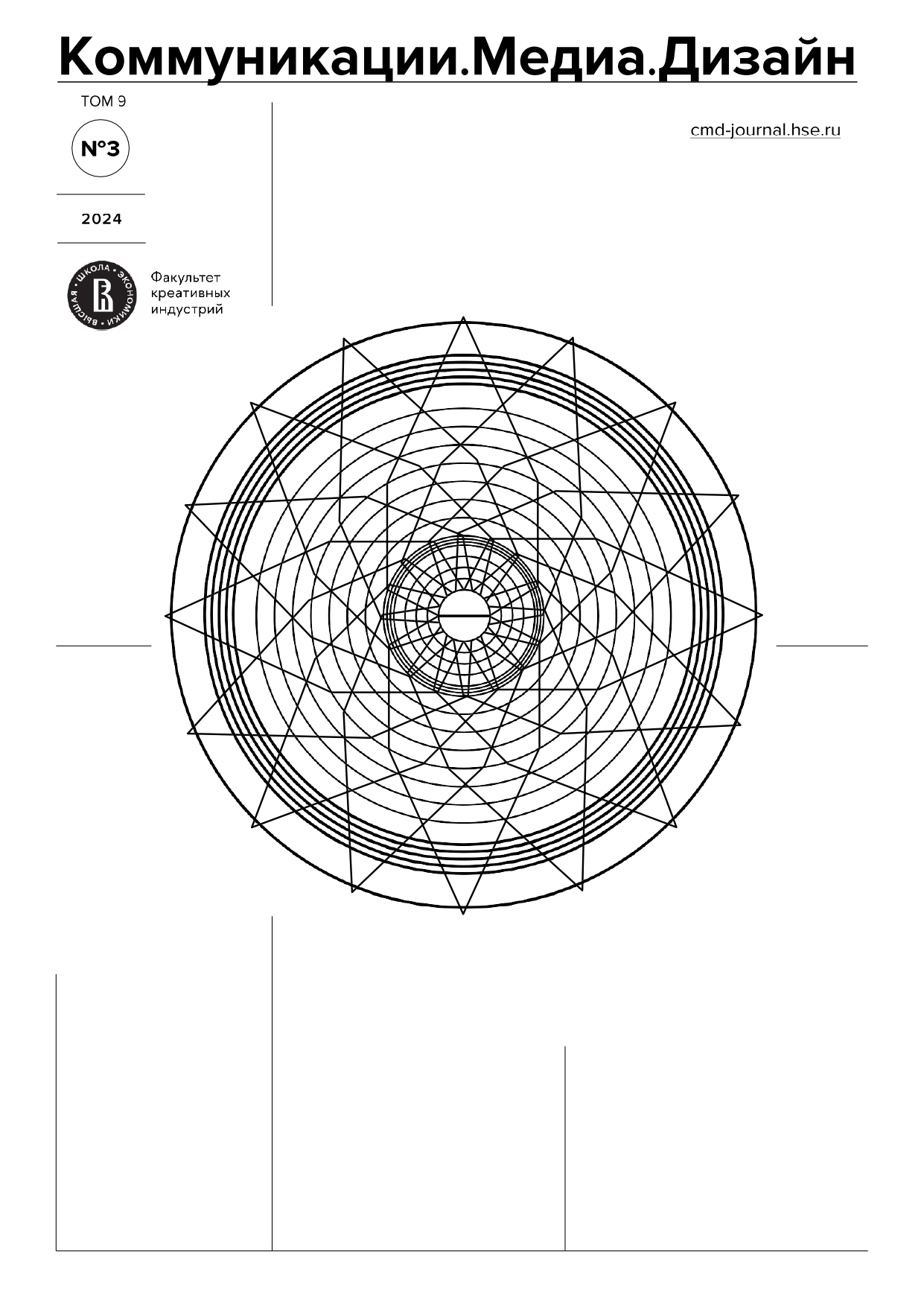The Values of Life and Health in Russia in the Context of Globalization Challenges and Infodemic Doomscrolling
Abstract
The relevance of the study is due to the increasing volume of media consumption and increased information pressure against the background of globalization challenges. In conditions of constant information flow, reinforced by social networks and news platforms, Russians are faced with the phenomenon of "doomscrolling" – the habit of scrolling through negative news. This phenomenon increases in conditions of infodemia, which leads to information stress and negatively affects mental health. A study on the values of life and health of Russians in the context of globalization challenges and infodemic doomscrolling has revealed several key results. Firstly, a significant part of the respondents demonstrated a tendency to "doomscrolling" – scrolling through the negative news feed, which was associated with an increased level of anxiety and information stress. Secondly, respondents who actively consumed negative news materials showed a decrease in overall psychological well-being, which was expressed in increased anxiety, depression and a feeling of helplessness. The study also revealed a link between media consumption and value orientations. For most Russians, values such as health, life and family are of the greatest importance, but information overload leads to a distortion of the perception of these values, increasing fears and anxieties. This manifests itself in increased sensitivity to global threats such as wars, economic crises and environmental disasters. An important result of the study was the confirmation that the tendency to "doomscrolling" negatively correlates with personal well-being and the level of social adaptation. Respondents with a high level of critical thinking and a stable psyche showed less involvement in negative information flows and were less affected by infodemia. The conclusions of the study emphasize the need to develop information ecology and psychosocial support to reduce the negative impact of infodemic doomscrolling on the quality of life and mental well-being of the population in the context of globalization challenges.
Downloads
References
Гиренок, Ф. И. (2024). Клиповое сознание. Проспект.
Дейнека, О. С. (2015). Психологические предпосылки деструктивности в условиях глобальных трансформаций и кризисов, Перспектива человека: трансформация картины мира в современно геополитическом кризисе. В Л. М. Шипицына (ред.). Сборник статей межвузовской научно-теоретической конференции. 21 мая 2015 г. (сс. 55–74). ЧОУВО «Институт специальной педагогики и психологии».
Дейнека, О. С., Максименко, А. А. (2024). Вакцина от инфодемии или психологическое состояние общества на фоне пандемии, вызванной COVID-19. АНО «Центр социальных инициатив».
Знаков, В. В. (2019). Теоретические основания понимания западной постправды и русского вранья. Вопросы психологии, (1), 16–30.
Катков, А. Л. (2013). Деструктивные социальные эпидемии. РГКП «Республиканский научно-практический Центр медико-социальных проблем наркомании».
Максименко, А. А. (2019). Ценностно-рациональное управление в российских бизнес-организациях в условиях сетизации деловой среды. [Автореферат диссертации на соискание ученой степени доктора социологических наук]. https://rusneb.ru/catalog/000199_000009_008703028/?ysclid=m1m7ru6ral206748836
Максименко, А. А., Дейнека, О. С. (2023). Индивидуальная самостоятельность россиян в контексте глобальных вызовов. Теория и практика общественного развития, 182 (4), 16–24. https://doi.org/10.24158/tipor.2023.4.1
Максименко, А. А., Дейнека, О. С. (2023). Инфодемический думскроллинг и проблемы сексуальной удовлетворенности женщин. Психиатрия, психотерапия и клиническая психология, 14(4), 400–410. https://doi.org/10.34883/PI.2023.14.4.008
Максименко, А. А., Дейнека, О. С., Мортикова, И. А. (2022). Инфодемический думскроллинг и психологическое благополучие россиян. Общество: социология, психология, педагогика, (12), 129–136. https://doi.org/10.24158/spp.2022.12.20
Максименко, А. А., Дейнека, О. С., Юринова, Д. В., Чарушина, Е. И., Бояркин, К. Е. (2024). Связь компульсивных покупок с тревожностью и депрессией у россиян. Экономическая социология, 25(1), 58–84. https://doi.org/10.17323/1726-3247-2024-1-58-84
Максименко, А. А., Харский, К. В. (2012). Управленческое Евангелие от Константина и Александра. Инфра-М.
Нестик, Т. А., Дейнека, О. С., Максименко, А. А. (2020). Социально-психологические предпосылки веры в конспирологические теории происхождения COVID-19 и вовлеченность в сетевые коммуникации. Социальная психология и общество, 11(4), 87–104. https://doi.org/10.17759/sps.2020110407
Нестик, Т. А., Журавлев, А. Л. (2020). (ред.) Человек в условиях глобальных рисков: социально-психологический анализ. Институт психологии РАН. https://doi.org/10.38098/soc.2020.88.75.001
Ортега-и-Гассет, Х. (1997). Избранные труды (пер., ред. А. М. Руткевич). Издательство «Весь Мир».
Ракитянский, Н. М. (2020). Ментальные исследования глобальных политических миров. Издательство Московского университета.
Решетников, М. М. (2010). Социальная терапия, уровень и качество жизни в современной России. Психология в экономике и управлении, 4(2), 40–45.
Юрьев, А. И. (1996). Системное описание политической деятельности. [Диссертация на соискание ученой степени доктора психологических наук в форме научного доклада].
Юрьев, А. И. (2004). Политическая психология терроризма. В М. М. Решетников (ред.). Психология и психопатология терроризма. Гуманитарные стратегии антитеррора (сс. 64–86). Восточно-Европейский Институт Психоанализа.
Carle, J. (2015). Climate Change Seen as Top Global Threat Americans, Europeans, Middle Easterners Focus on ISIS as Greatest Danger. Pew Research Center.
Garg, N., Williams, L. A., Lerner J. S. (2018). The misery-is-not-miserly effect revisited: Replication despite opportunities for compensatory consumption. PLoS ONE, 13(6), e0199433. https://doi.org/10.1371/journal.pone.0199433
Gerges, M. (2023). TikTok Made Me Buy it: Emotional Carryover of Doomscrolling on Purchasing Decisions. CMC Senior Theses. 3323. https://scholarship.claremont.edu/cmc_theses/3323
McCrae, R. R., Costa, P. T., Jr. (2003). Personality in adulthood: A five-factor theory perspective, Second Edition. Guilford Press.
Rick, S. I., Pereira, B., Burson, K. A. (2014). The benefits of retail therapy: Making purchase decisions reduces residual sadness. Journal of Consumer Psychology, 24(3), 373–380. https://doi.org/10.1016/j.jcps.2013.12.004
Rozado, D., Hughes, R., Halberstadt, J. (2022). Longitudinal analysis of sentiment and emotion in news media headlines using automated labelling with Transformer language models. PLoS ONE, 17(10), e0276367. https://doi.org/10.1371/journal.pone.0276367
Satici, S. A., Tekin, E. G., Deniz, M. E., Satici, B. (2022). Doomscrolling Scale: its Association with Personality Traits, Psychological Distress, Social Media Use, and Wellbeing. Applied Research in Quality of Life, 19, 833–847. https://doi.org/10.1007/s11482-022-10110-7
Sharma, B., Lee, S. S., Johnson, B. K. (2023). The dark at the end of the tunnel: Doomscrolling on social media newsfeeds. Technology, Mind, and Behavior, 3(1). https://doi.org/10.1037/tmb0000059
Copyright (c) 2024 HSE University

This work is licensed under a Creative Commons Attribution 4.0 International License.

